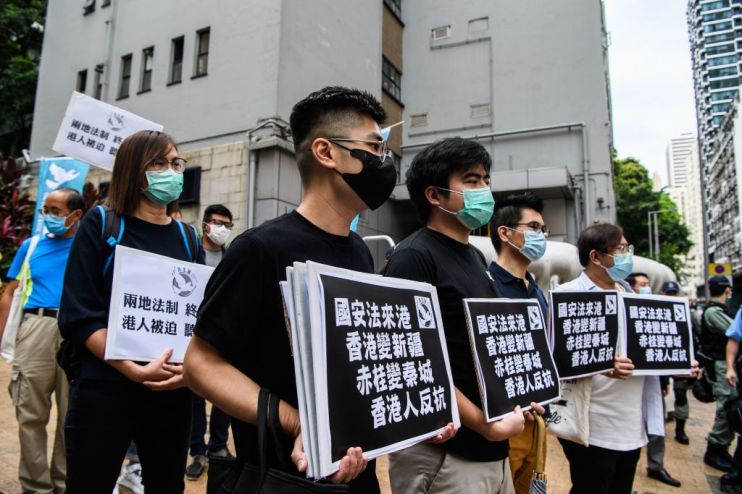UK will offer ‘route to citizenship’ for Hong Kongers if China introduces security law

The UK will change its immigration rules to offer “a route to citizenship” to millions of people in Hong Kong if China imposes new security laws, Prime Minister Boris Johnson said.
Johnson said the UK would “have no choice” but to uphold its ties with the territory, the Times reported.
China is facing growing international condemnation over its planned law which many Hong Kong residents fear could end the freedoms they enjoy.
The UK is in talks with allies such as the US and Australia about what to do if Beijing introduces the new law and people start leaving Hong Kong.
In the Times today, Johnson said that if China passes the law, Hong Kong residents who hold British National (Overseas) (BNO) passports will be allowed to come to the UK for 12 months without a visa. At the moment they are allowed to come for six months.
Roughly 350,000 people in Hong Kong have a BNO passport, but 2.6m others are also eligible.
BNO passport holders would be given further immigration rights such as the right to work.
This “could place them on a route to citizenship,” the Prime Minister said.
Johnson said the immigration reforms “would amount to one of the biggest changes in our visa system in British history”.
“If it proves necessary, the British government will take this step and take it willingly.
“Many people in Hong Kong fear their way of life, which China pledged to uphold, is under threat.
“If China proceeds to justify their fears, then Britain could not in good conscience shrug our shoulders and walk away; instead we will honour our obligations and provide an alternative.”
Johnson said the new law would “dramatically erode” Hong Kong’s autonomy.
Hong Kong was a British colony leased from China for 99 years. It was handed back to China in 1997 after China agreed to uphold Hong Kong’s rights under the one country two systems model.
BNO passports were given to all Hong Kong citizens born before 1997.
Yesterday, Foreign secretary Dominic Raab told China to “step back from the brink” and to not enforce the planned security legislation in Hong Kong.
Raab told MPs that the new legislation “lies in direct conflict with China’s international obligations” and was a breach of Hong Kong’s autonomy.
The new legislation, passed by China’s parliament last week, would see a clampdown on criticism of the Communist Party of China and the setting up of security agencies in Hong Kong for the first time.
Raab told the House of Commons that the legislation was in breach of its commitment to maintain the one country, two systems approach agreed in the 1997 handover.
“To be very clear and specific about this, the imposition of national security legislation on Hong Kong by the government in Beijing rather than through Hong Kong’s own institutions lies in direct conflict with Article 23 of China’s own basic law,” he said.
“And it lies in direct conflict with China’s international obligations freely assumed under the Joint Declaration.”
“There is time for China to reconsider, there is a moment for China to step back from the brink and respect Hong Kong’s autonomy and respect China’s own international obligations.
“If China continues down this current path, if it enacts this national security law, we will consider what further response we make, working with those international partners and others.”